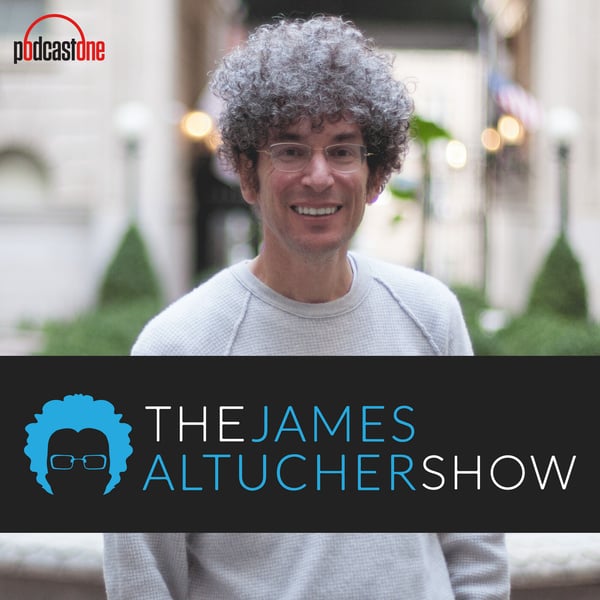586 - How to Optimize Your Brain to Be as Happy as Possible with Stanford Neuroscientist Dr. Andrew Huberman
The James Altucher Show
James Altucher
4.6 • 2.7K Ratings
🗓️ 12 May 2020
⏱️ 98 minutes
🧾️ Download transcript
Summary
Transcript
Click on a timestamp to play from that location
| 0:00.0 | You know, I think what we all realize during this quarantine is that life is short and we've |
| 0:19.5 | got to kind of enjoy things and part of that is taking care of your brain, you know, which |
| 0:25.2 | sends all these happiness chemicals throughout our body. Absolutely. Well, and let me ask you if |
| 0:30.8 | this analogy is wrong. Like I feel like, you know, the fight or flight instinct when there's danger |
| 0:36.4 | is something that would, let's say, 30,000 years ago probably would spike for people and then go |
| 0:42.1 | back down to normal very quickly. Whereas I feel just even before this pandemic, I feel like we're |
| 0:48.1 | constantly in this low simmering fighter flight mode in our brain, but we're just sitting still |
| 0:55.1 | and staring at a computer screen where all the lions and tigers in the jungle our brain things are. |
| 1:01.0 | Definitely. And of course, I probably increased during this time, but just in general, I want to figure |
| 1:07.1 | out best practices for all these things. Well, I'm excited for today's conversation because there are |
| 1:13.4 | things that we all can do to optimize the neurochemicals that allow us to focus better, sleep better, |
| 1:19.9 | feel better. So here's the interesting thing about dopamine. Dopamine doesn't care about the deeper |
| 1:26.8 | meaning. It's not like if you get a like that your brain is doing some really fast subconscious |
| 1:32.0 | processing, says, okay, I like equals this equals this means my life is secure and I feel good. It |
| 1:37.0 | doesn't do that. Dopamine works on much shorter time scales. Dopamine tends to get engaged in |
| 1:42.9 | whatever you're focused on. So it's kind of a positive ample occasion. You can train up focus. |
| 1:48.4 | You can train up gold directed behavior. All right, so I'm starting off the day. I want dopamine to |
| 1:53.9 | kick in. I want focus, happiness, excitement for my goals and I want to be super smart. Okay, so |
| 2:03.4 | let's talk about some behavioral things and then we can talk about nutritional and supplementation |
| 2:08.8 | things that really push it a little bit harder. So once again, Professor Andrew Huberman, |
| 2:21.0 | Professor of Neuroscience at Stanford, we had him on a few weeks ago to talk about specific |
| 2:27.6 | neuroscience neurobiological ways of dealing with anxiety, stress, the brain in, you know, |
... |
Please login to see the full transcript.
Disclaimer: The podcast and artwork embedded on this page are from James Altucher, and are the property of its owner and not affiliated with or endorsed by Tapesearch.
Generated transcripts are the property of James Altucher and are distributed freely under the Fair Use doctrine. Transcripts generated by Tapesearch are not guaranteed to be accurate.
Copyright © Tapesearch 2025.

